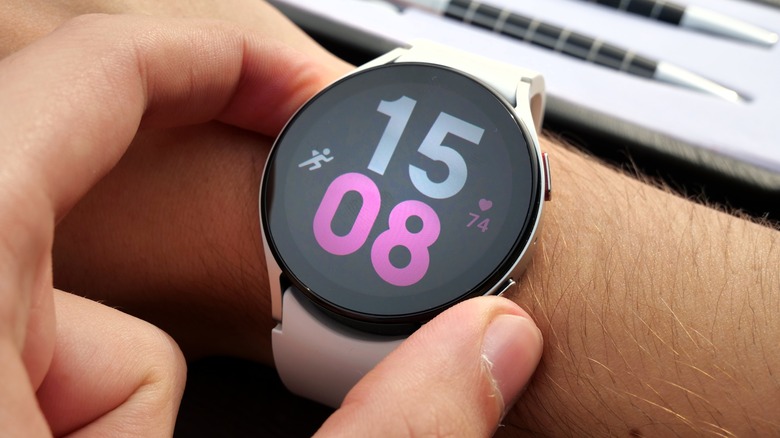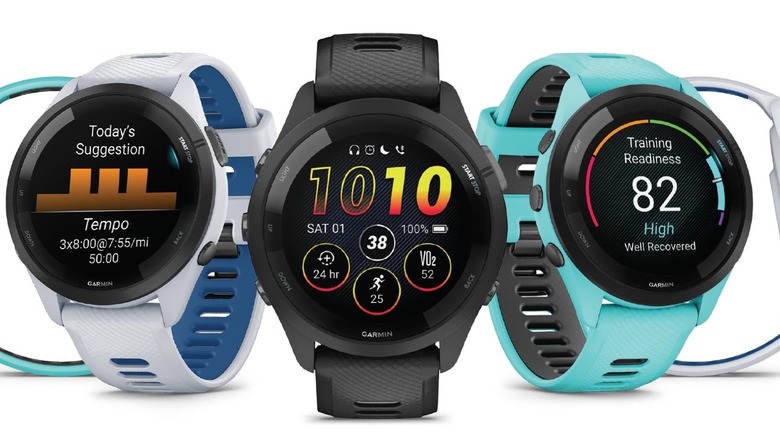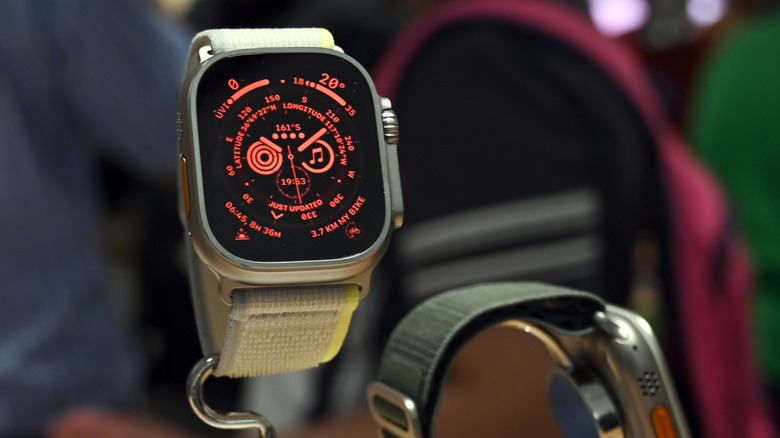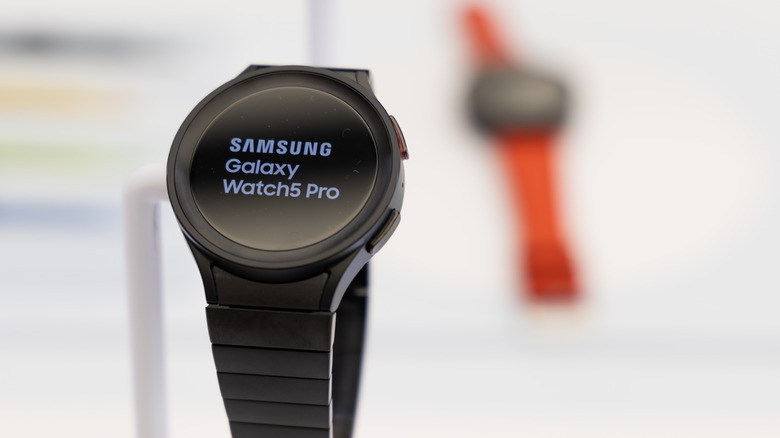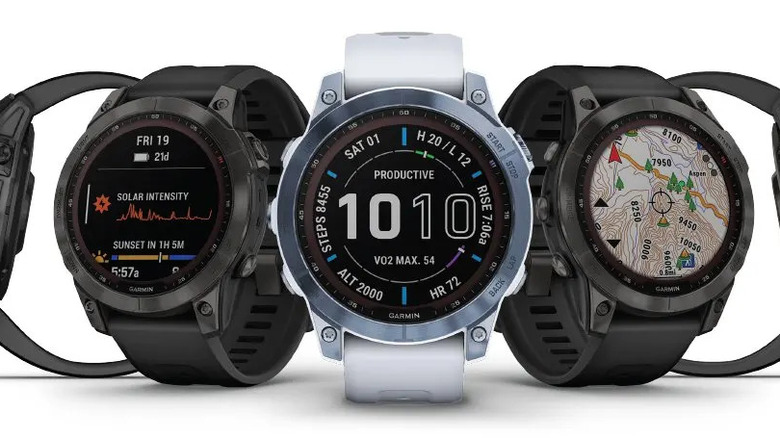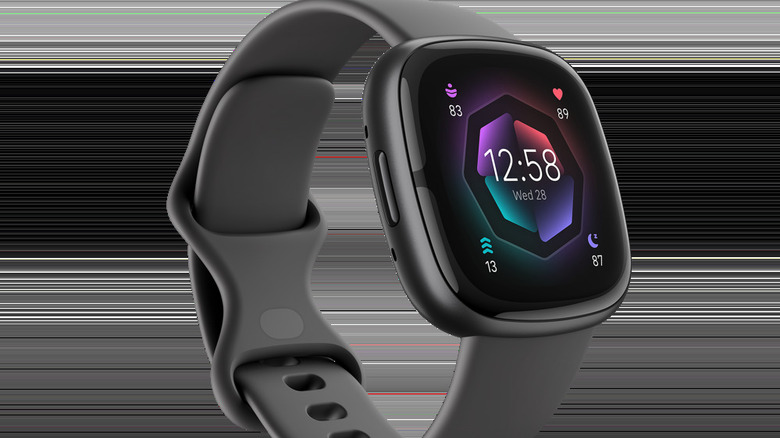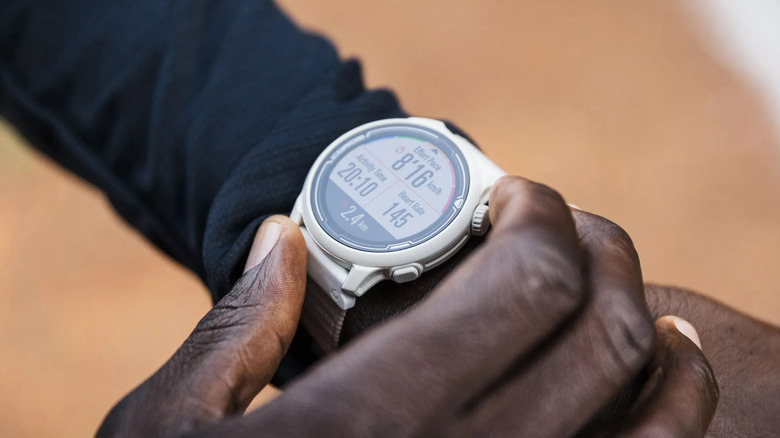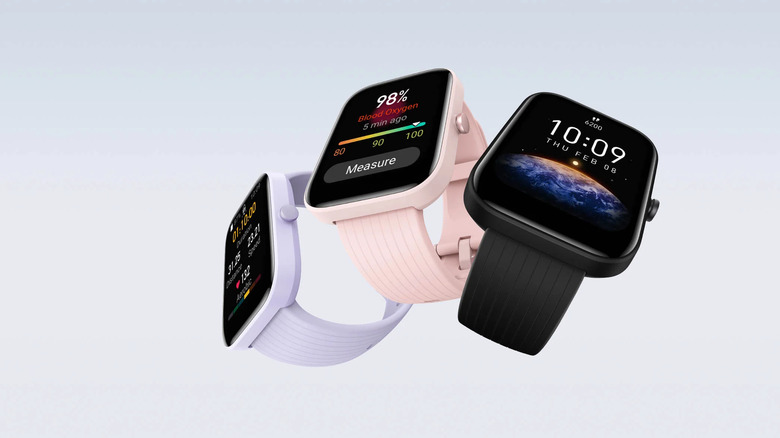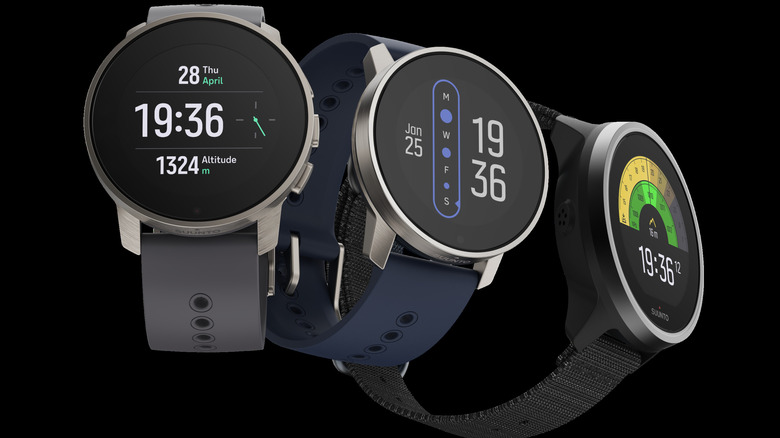The 8 Best Running Watches Of 2023
There was a time when all you needed to train as a runner was a decent pair of shoes and, if you were ambitious, a stopwatch to track your time. It's still possible to get by on that bare-bones setup, but ever since Casio released the first GPS-enabled watch in 1999, wearable tech has become the runner's best friend, making it increasingly easier to track distance, time, pace, and performance in one device you wear on your wrist.
Early GPS watches were bulky, bare-bones when it came to features, and sometimes not the best at positioning, making their utility and value debatable. A lot has changed, however, in the past couple of decades. Today's fitness-focused wearables are pushing the frontier forward in accurate locational tracking, and many come with a raft of applications to assist in tasks like planning routes, keeping a tab on your biometrics, and exercising to your peak capacity.
What's more, a number of competing manufacturers have entered the field, offering up a wide range of options to suit anyone's fitness goals and budget. That's to say nothing of the modern, jack-of-all-trades smartwatch, the producers of which have recognized the value in serving the running set. It's safe to say that aspiring road racers are spoiled for choice when shopping for a GPS-enabled watch in 2023. Here are the leaders of the pack, guaranteed to give you the edge when the rubber (sole) hits the road.
Garmin Forerunner 265
Garmin is probably the best-known player in this field, and picking from their products can be challenging given the variety of price points and feature sets. The 200 series is generally considered the best combination of quality, features, and value in Garmin's lineup, and its latest incarnation certainly picks up the baton and — if you'll pardon the pun — runs with it. arriving in two sizes and including features previously only available in Garmin's higher-end watches.
The most visible upgrade is the AMOLED screen, which is bright, colorful, and touch control-capable -– a 200 series first. All versions of the 265 include onboard music functionality, allowing for the storage of up to 500 songs as well as playlists from Spotify, Deezer, and Amazon Music. Its GPS is quick to connect and utilizes the increasingly standard multi-band positioning protocol for accurate location tracking. Fitness and biometrics tracking has also improved with the Training Readiness feature, which is designed to monitor certain indicators pre-workout.
Thanks to the AMOLED display, battery life is slightly less than the 265's predecessors, but we're still talking about up to 20 hours in GPS mode, which is more than enough for most regimens. The only real downside is the price –- at $450, the Garmin Forerunner 265 is cheaper than Garmin's higher-end watches but still a significant investment. That said, you get what you pay for, and Garmin delivers a high-quality product in the 265 for those who are slightly more serious than casual about their road time.
Apple Watch Ultra
As Garmin is to running watches, Apple Watch Ultra is to the all-purpose smartwatch — there are other brands, but it's likely the first name that enters your mind when someone mentions the product type. That said, the average Apple Watch's utility as a training tool has lagged behind more fitness-focused brands, which is one of the reasons the Apple Watch Ultra was released in late 2022. It's not a Garmin-killer, but it's the best bet for iOS users looking for a smartwatch that can approach matching strides with the big boys.
At 49 millimeters, the Ultra's form factor is bigger than the standard Apple Watch, but that size increase is all about making room for more battery. The Ultra claims between 30 and 36 hours of mixed use on one charge, or around 15 hours with GPS tracking enabled. That's a significant step up from Apple's standard, although still behind the field in the fitness space. Biometrics tracking and onboard music capabilities are robust, and the Ultra has incorporated dual-band GPS for better positioning than the standard Apple Watch. And, of course, it's an Apple smartwatch: Feature-rich, sleekly designed, and versatile.
As with most Apple products, the biggest downside here is the price point. The Apple Watch Ultra is currently listed at $799, which makes it one of the most expensive options on our list. If bang for your buck beyond fitness matters to you, though, you're going to get a lot of function for your money.
Samsung Galaxy Watch 5 Pro
If you're an athletically-inclined Android user and read the above entry with increasing envy, don't worry — there's a watch for you, too.
The Galaxy Watch 5 Pro is among the best Android-based smartwatches in general and comes equipped with a bevy of features aimed at active users. With its titanium case and sapphire crystal face, it's made with durability in mind, and the display's size and clarity make monitoring position and stats on the move easy.
The available features range from stride metrics to standard-issue fare like heart rate monitoring, but where the Galaxy really shines is in how it treats routes and route tracing. Of particular note are how well it performs in turn-by-turn navigation, as well as a nifty route tracking feature that creates a sort of digital breadcrumb trail you can follow back should you take a wrong turn on a trail.
The Galaxy Watch 5 Pro's battery life isn't necessarily upper-echelon, clocking in at around 20 hours with GPS enabled, but it's important to remember that, unlike many other entries on this list, also a fully functioning smartwatch, and with the LTE version, you don't even need a phone on-hand to take advantage of its connected features. At a price of only $400, the Galaxy Watch 5 Pro is a bargain compared to the Apple Watch Ultra and absolutely worth a look for Android devotees.
Garmin Fenix 7X Sapphire Solar
Many runners stick to paved roadways, but if training takes you off the beaten path, you're going to need a GPS watch that's made for trail running. As should be expected, Garmin has you covered with the Fenix 7X Sapphire Solar. If the 265 is the down-the-middle choice for the mainstream runner, the Fenix is for the serious adventure enthusiast. It's rugged, fully decked out with features, and possessed of both serious battery life and the ability to charge with the very energy of the sun itself.
Of course, just because the Fenix 7 is made for rougher terrain doesn't mean it can't be pretty. The watch features a big, beautiful screen that incorporates touch control functionality and displays onboard maps clearly and colorfully. It's packed with advanced training tools, including modes for cycling, swimming, and other activities for those times when you want to give your knees a break. The big selling point, however, is the Fenix 7's battery life, which is advertised as stretching to 89 hours with the GPS active. Couple that with the ability to charge via solar power, and you've got a device that's not going to die on you no matter how far afield you roam.
This is a top-of-the-line watch, which means it's not for the light of wallet — the Garmin Fenix 7X Sapphire Solar clocks in at $799, and all without the smartwatch features of the Apple Watch Ultra. Still, if you can stomach the investment, though, you won't find many higher-end alternatives.
Fitbit Sense 2
Fitbit is long established in the wearable health-tracking tech space, serving those who want always-on tracking of their daily activity, sleep habits, and other markers. The Sense 2 is the latest iteration of Fitbit's highest-end offering, featuring a smartwatch form factor rather than the lozenge-like shape of the company's more recognized products. It's not quite as fully featured as some of the bigger smartwatch players or the highly specialized products from the likes of Garmin, but for anyone already familiar with the Fitbit ecosystem, it's an option worth exploring.
Of particular note are a couple of biometric features unique to the Sense 2. First, it tracks what Fitbit calls Body Response using multiple wrist-based sensors to record electrodermal activity and note changes in markers like skin temperature and variations in heart rate. This enables the wearer to note how they're responding to certain stressors and practice mindfulness. The Sense 2 also carries features for menstrual cycle tracking, making it even more helpful for women in training. Rounding out the feature set is voice control enabled through Google Assistant and Amazon Alexa and a six-day battery life.
The biggest downside to the Sense 2 is its middle-of-the-road philosophy –- it's not as good a smartwatch as some of the more full-on options like the Apple Watch Ultra, and it's not as good a training device as wearables from brands like Garmin. It gets the job done, though, and at $230, the Fitbit Sense 2 is one of the more reasonably-priced options on our list.
Coros Pace 2
In the ongoing GPS watch arms race, the urge to add features and expand functionality has been hard for many manufacturers to resist, especially once smartwatches became a thing. Chinese wearables manufacturer Coros has made a splash in the space since arriving in 2014 by focusing on runners, including securing endorsements from the likes of marathon world record holder Eliud Kipchoge. The Pace 2 is a little more bare-bones than some of the watches on this list, but for serious runners, it's absolutely worth a look.
Let's start with the most noticeable thing — the Pace 2 is very light. At only 29 grams, it's easily the lightest watch on this list. While a matter of a few grams here and there might seem trivial, it's worth noting, especially for long-distance runners. Controls are streamlined and limited to two buttons, one of which rotates like a digital crown. Battery life is another big selling point, with the Pace 2 offering 30 hours of GPS activity or approximately 20 days in standard use on a full charge.
The trade-off in all this streamlining is that the Pace 2 lacks some of its competitors' bells and whistles. The display is LCD, which is a step behind today's standards. Features like onboard music or any sort of communications technology are absent. While access to Coros' EvoLab training program comes subscription-free with the purchase of a Coros product, the platform isn't as fully fleshed-out as options from the bigger names. Still, at a price of only $200, the Coros Pace 2 delivers enough to make it worth a look for anyone who wants a quality watch focused on running.
Amazfit Bip 3
Okay, the Amazfit is not on a level, features-and-functionality-wise, with a lot of the other watches on this list. Its GPS won't give you the precision and accuracy of a Garmin or the Apple Watch Ultra. Its display looks somewhat muted compared to some of the AMOLED options on this list. It's not a smartwatch, and the data it tracks isn't as complex or nuanced as some of the other platforms we're highlighting here.
So, why recommend it? What this device brings to the table other watches can't match is a bang for your buck that is almost staggering. The Amazfit Bip 3 costs all of $60, which, if you've been paying attention, is literally less than one-tenth the cost of some of the top-tier watches we've discussed. While you might expect a price tag that low to mean you're going receive limited functionality, you'll ultimately be surprised at just how much the Bip 3 does deliver.
Its construction isn't as polished as its competitors, but it's a very lightweight watch with a form factor approximating that of a standard Apple Watch. Its battery life is expansive, clocking in at 14 days of mixed use or 16 hours with GPS tracking enabled. For basic fitness needs like heart rate monitoring, it gets the job done. Simply put, beginning runners or those on a serious budget could spend a trio of Andrew Jacksons in many worse ways.
Suunto 9
Battery life can seem like not that differentiating a feature in the GPS watch space. After all, once you get up in the dozens of hours, is there really that much of a difference? As anyone who's ever had their watch die on them deep into a distance run can tell you, though, duration of charge is one of the more vital specs for training-focused wearables.
Finnish manufacturer Suunto recognizes this, so they've equipped their 9 line of watches with an absolutely absurd amount of battery life. The company claims 120 hours of tracking activity on one charge, making use of an Ultra setting that only geolocates every two minutes while filling in the gaps with onboard sensors. Those are numbers to make an ultrarunner's ears perk up, and they also make the Suunto 9 suited to a weekend on the trails without easy access to a power source.
All that juice comes at a cost in construction, making the Suunto 9 one of the bigger and heavier watches on this list. That said, it's not an unattractive package, and you also get more than just a hefty battery with that bulk, as the Suunto 9 features an altimeter, barometer, and compass for enhanced outdoor performance.
While its interface may have a steeper learning curve compared to some other watches, its durability, long battery life, and extensive tracking capabilities make it an excellent companion for serious runners. The Suunto 9 Baro starts at $239.
